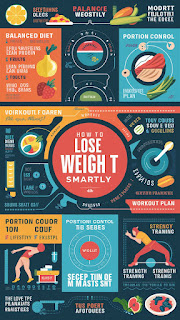Intermittent fasting
Intermittent fasting
Intermittent fasting has gained popularity in recent years as a weight loss strategy, with some research suggesting it can be an effective way to shed excess pounds. While intermittent fasting may not be for everyone, it may be worth considering if you’re a woman looking to improve your health and lose weight. Here’s what you need to know about intermittent fasting for weight loss.
What is Intermittent Fasting?
Intermittent fasting is an eating pattern that involves cycling between periods of eating and fasting. There are several different methods of intermittent fasting, but the most common is the 16/8 method, which involves fasting for 16 hours and then eating during an 8-hour window. For example, you might eat all of your meals between noon and 8 pm and then fast from 8 pm to noon the next day.
How Does Intermittent Fasting Help with Weight Loss?
There are several ways in which intermittent fasting may help with weight loss. First, by restricting your eating to a certain window of time, you may naturally eat fewer calories overall. This can lead to a calorie deficit, which is necessary for weight loss.
Intermittent fasting may also improve insulin sensitivity, which can help your body more effectively use glucose (sugar) from your bloodstream. This can lead to lower blood sugar levels and may also increase fat burning.
Additionally, intermittent fasting may boost your body’s production of human growth hormone (HGH), which is involved in the regulation of metabolism and fat loss.
Is Intermittent Fasting Safe for Women?
Intermittent fasting is generally considered safe for healthy adults, including women. However, it may not be suitable for everyone, and it’s important to talk to your healthcare provider before starting any new eating pattern.
There are some potential risks to be aware of when it comes to intermittent fasting for women. For example, some research suggests that women may be more prone to disordered eating patterns when following an intermittent fasting protocol. It’s important to be mindful of your eating habits and to make sure that you’re getting enough nutrients while following an intermittent fasting plan.
Additionally, if you have a history of disordered eating or other health conditions, such as diabetes, it’s especially important to speak with your healthcare provider before starting an intermittent fasting protocol.
Tips for Success with Intermittent Fasting
If you’re considering trying intermittent fasting for weight loss, here are a few tips to help you succeed:
- Start slow: If you’re new to intermittent fasting, it can be helpful to ease into it by starting with shorter fasting periods and gradually working your way up to longer ones.
- Stay hydrated: Make sure to drink plenty of water during your fasting periods to help keep your body hydrated.
- Eat a balanced diet: While you’re eating, be sure to focus on nourishing your body with a variety of healthy, whole foods.
- Listen to your body: If you’re feeling particularly hungry or low on energy while following an intermittent fasting plan, it may not be the right choice for you. Be sure to pay attention to your body’s needs and adjust your plan as needed.
In conclusion, intermittent fasting may be an effective weight loss strategy for some women. However, it’s important to speak with your healthcare provider before starting any new eating pattern and to pay attention to your body’s needs while following an intermittent fasting plan. By eating a balanced diet and listening to your body, you can set yourself up for success with intermittent fasting.






